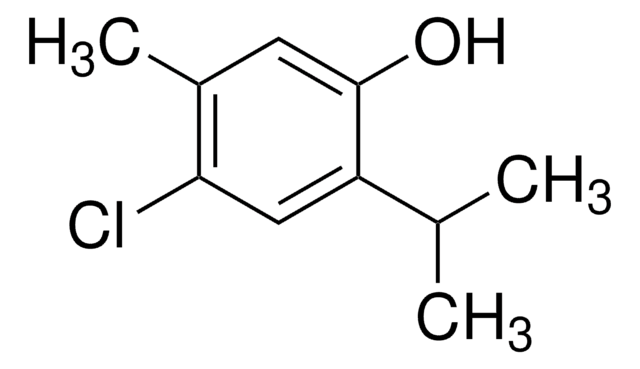35833
4-Chloro-2-methylphenol
PESTANAL®, analytical standard
Synonym(s):
4-Chloro-o-cresol
About This Item
Recommended Products
grade
analytical standard
Quality Level
product line
PESTANAL®
shelf life
limited shelf life, expiry date on the label
technique(s)
HPLC: suitable
gas chromatography (GC): suitable
bp
220-225 °C (lit.)
mp
43-46 °C (lit.)
application(s)
agriculture
environmental
format
neat
SMILES string
Cc1cc(Cl)ccc1O
InChI
1S/C7H7ClO/c1-5-4-6(8)2-3-7(5)9/h2-4,9H,1H3
InChI key
RHPUJHQBPORFGV-UHFFFAOYSA-N
Looking for similar products? Visit Product Comparison Guide
Application
Recommended products
Legal Information
Signal Word
Danger
Hazard Statements
Precautionary Statements
Hazard Classifications
Acute Tox. 3 Inhalation - Aquatic Acute 1 - Eye Dam. 1 - Skin Corr. 1
Storage Class Code
6.1A - Combustible acute toxic Cat. 1 and 2 / very toxic hazardous materials
WGK
WGK 2
Flash Point(F)
172.4 °F - closed cup
Flash Point(C)
78 °C - closed cup
Personal Protective Equipment
Choose from one of the most recent versions:
Already Own This Product?
Find documentation for the products that you have recently purchased in the Document Library.
Our team of scientists has experience in all areas of research including Life Science, Material Science, Chemical Synthesis, Chromatography, Analytical and many others.
Contact Technical Service










